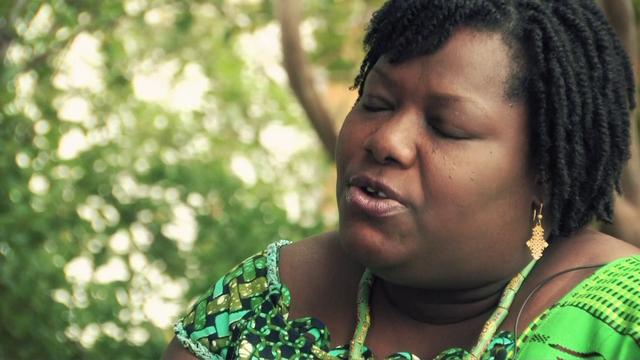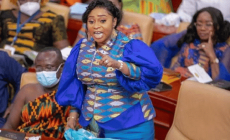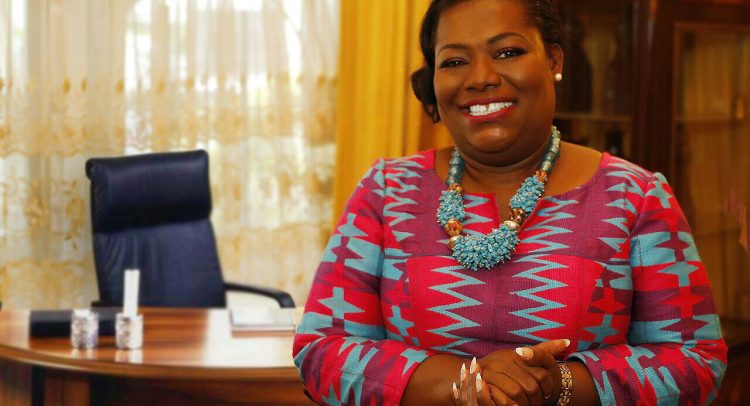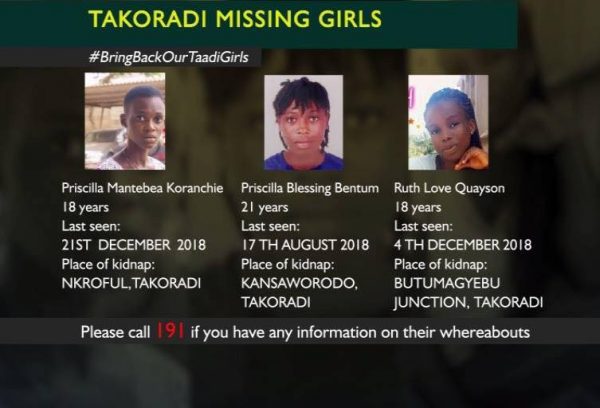Gender Minister Nana Oye Lithur blasts critics of free sanitary pads
- Posted on
- Comment
 The Ministry of Gender Children and Social Protection has described as unfounded, reactions by some members of the public to the inclusion of sanitary pads in the scholarship package for students.
The Ministry of Gender Children and Social Protection has described as unfounded, reactions by some members of the public to the inclusion of sanitary pads in the scholarship package for students.
In a statement signed by the sector Minister, Nana Oye Lithur, noted that “evidence has shown that investing in girls’ education, and ensuring adolescent girls are supported during their first years of sexual maturity has a direct positive impact and increases their chances of staying in school.’’
‘’Research conducted by a team of researchers and funded by the Green Templeton College of the University of Oxford, and supported by the Skoll Centre for Social Entrepreneurship in 2008/09 in Ghana showed, that the provision of free disposable pads, and education about menstruation improved school attendance among girls, and potentially improved retention,’’ the statement added.
According to the statement UNESCO estimates revealed that one in 10 African adolescent girls misses school during menses and eventually drops out of school due to menstruation-related issues, such as ‘’inaccessibility of affordable sanitary protection interalia’’.
‘’Basically, girls stay at home because they lack sanitary protection and towels; they stay at home to avoid staining themselves with blood and getting embarrassed in school and in public,’’ she opined.
Madam Oye Lithur called on Ghanaians to support the venture by government instead of trivializing it.
SCHOLARSHIP PACKAGE FOR GIRLS UNDER SECONDARY EDUCATION IMPROVEMENT PROJECT
The Ministry of Gender Children and Social Protection has noted with concern, some unfavorable reactions by certain members of the public and Parliamentarians about the scholarship component of the Secondary Education Improvement Project approved by Parliament on 3rd July, 2014.
Under the Project, 10,400 SHS students especially girls, over a three year period, will receive scholarships. Selection of the needy students will be done by an Independent Scholarship Administrator who will apply an agreed upon criteria.
Adolescent girls in Senior High School and students from low income families in Ghana will benefit from the scholarship package. This is to ensure they are supported by the Government of Ghana to remain in school and complete their secondary education successfully. The category of students who will benefit from the scholarship package are self-financing students, disabled students, orphan students, students living with HIV/AIDs, students from LEAP households among others.
Of particular interest has been the inclusion of sanitary pads in the scholarship package for the beneficiary students. Concerns have been raised about why the Government of Ghana should use taxpayer’s money to procure sanitary pads for girls. These concerns are unfounded since evidence has shown, that investing in girls’ education, and ensuring adolescent girls are supported during their first years of sexual maturity has a direct positive impact and increases their chances of staying in school.
Research conducted by a team of researchers and funded by the Green Templeton College of the University of Oxford, and supported by the Skoll Centre for Social Entrepreneurship in 2008/9 in Ghana showed, that the provision of free disposable pads, and education about menstruation improved school attendance among girls, and potentially improved retention.
Absenteeism dropped from 21 percent of school days missed to 9 percent. As noted in the Report, ‘Girls need sanitary care methods that minimize the visibility of puberty by avoiding accidental leakage’. A study in 2011 showed that menstruation caused Kenyan girls to lose an average of 3-5 learning days a month. This naturally has implications for education of girls.
UNESCO estimates that one in 10 African adolescent girls miss school during menses and eventually drops out of school because of menstruation-related issues, such as inaccessibility of affordable sanitary protection interalia.
Basically, girls stay at home because they lack sanitary protection and towels; they stay at home to avoid staining themselves with blood and getting embarrassed in school and in public.
Sanitary pads are costly, and some girls and their parents cannot afford to buy them. Some girls have to use rags, mattress stuffing, cut up old clothes and other unorthodox material during menstruation. Studies in Ghana and East Africa have shown that girls prefer to use disposable pads during menstruation and that is why the Government of Ghana has included sanitary pads in the scholarship package for needy girls.
This innovation in Ghana must be supported by all, who seek to promote and ensure that the words of Dr Kwegir Aggrey about educating a girl child become a reality. East Africa is leading the way in providing vulnerable girls with sanitary pads and we must follow and adapt this best practice. This practice has been going on in Kenya since 2007. The Kenyan Government, through its Ministry of Education allocated KSSh300 million ($4million) in its education budget for provision of free sanitary pads to school girls in 2011. The Kenyan Ministry of Education plans to provide sanitary pads to all Kenyan school girls. These pads can be produced locally by rural women in Ghana, as is being done by rural Indian women.
It is remarkable to note that this initiative by the Kenyan Government was as a result of ‘persistent pressure’ from Female Parliamentarians about the plight of Kenyan girls during menstruation.
Ghana has made significant and impressive progress over the last two decades in promoting gender equality in access to primary and secondary education. The Gross enrollment rate has increased from 93.7 percent in the 2006/7 academic year to 105 percent for the 2012/13 academic year. In 1997, the Government set up the Girls Education Unit to provide Girls education, and we now have girls education officers in each district under the Ghana Education Service.
Gender disparities in school enrollment and retention however, continue to be in focus. How do we achieve Millennium Goal Number Two on universal primary education? Menstruation should not be a barrier to an adolescent’s girl’s educational rights in Ghana. This is what the Government of Ghana is seeking to address by ensuring needy girls are provided with sanitary pads so they stay in school.
=End=
Signed
Nana Oye Lithur (Mrs.)
Minister, Ministry of Gender, Children and Social Protection
SCHOLARSHIP PACKAGE FOR GIRLS UNDER SECONDARY EDUCATION IMPROVEMENT PROJECT
Date: 4th July 2014
Credit: Ministry of Gender, Children and Social Protection










 (Selorm) |
(Selorm) |  (Nana Kwesi)
(Nana Kwesi)